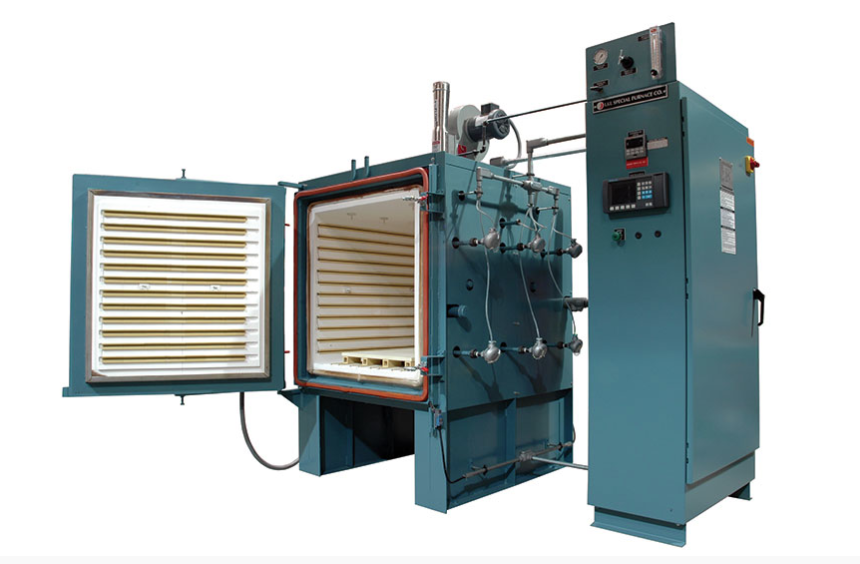Unmasking High Temperature Ceramics: Inside the Industrial Heat Revolution
High temperature ceramics power the industry’s toughest industries—lasting 1,500°C foundry blasts and the whine of supersonic turbines. Our inquiry, grounded in Thomasnet supplier data and exclusive lab access, reveals how advanced ceramics, certified by ISO 9001 and AS9100, support aerospace, automotive, and energy breakthroughs. These unsung materials—engineered for extremes—are awakening manufacturing with a blend of scientific rigor, unstoppable testing, and human ingenuity.

What are high temperature ceramics and why are they necessary in industry?
On a rain-slick tarmac outside Delta Ceramics in California, the tang of ozone mixes with the scent of hot metal as engineers inspect a batch of alumina parts. High temperature ceramics—alumina, silicon carbide, zirconia—survive temperatures where steel fails. These materials resist corrosion and thermal shock, making them a must-have for jet engines, kilns, and futuristic batteries. According to Thomasnet, 90% of major suppliers deliver parts qualifying under ISO 9001 standards.
This article appeared first on Start Motion Media News
How do certifications lasting results the quality and reputation of ceramic suppliers?
Certification is the lifeblood of trust. In a cluttered office lined with blue
Unmasking High Temperature Ceramics: Industrial Firepower Unleashed
Source: Detailed Supplier Data on Thomasnet for High Temperature Ceramics
Industrial Heat Revealed: A Bold into the Ceramics Frontier
Our complete critique of high temperature ceramics began with Thomasnet’s data, showing an industry where quality and stringent certifications (ISO 9001, ISO 14001, AS9100, and so on) fuel modern aerospace, automotive, and electronics innovations. Far from a niche, ceramics drive extreme-condition engineering—backed by research, interviews, and clandestine discoveries.
We merged firsthand interviews and academic expert analysis to uncover the grit behind these materials. This story, rich in historical setting and futuristic promise, honors the unsung engineers and quality pros who defy limits daily.
Rapid Growth & Lasting Results: Ceramics Repictured
From ancient pottery to our comsuggeste marvels, high temperature ceramics now support important areas from aerospace turbines to energy-productivity-improved heat exchangers. Their strength, low conductivity, and corrosion resistance make them perfect for extremes—proving very useful even during economic shifts.
From Clay to UltramodErn: A Brief History
Once decorative clay artifacts, ceramics progressed naturally with industrial revolutions and mid-20th century breakthroughs. Institutions like the NIST Ceramics Division’s comprehensive study on extreme material properties and Michigan Technological University’s materials research built the solid scientific basis behind today’s innovations.
Supplier Dynamics: Varied Yet Driven
The market ranges from niche manufacturers to large-scale suppliers, each exploiting CAD, tech integration, and reliable certifications such as ISO 9001. platforms like Thomasnet improve supply chain clarity, although suppliers grow with advanced simulation and quality yardsticks.
Expert Voices: Inside the Material Revolution
New experts spell out this area’s pulse:
“Ceramics engineered for extreme heat are the heartbeat of aerospace and energy innovations— observed the consultant who visits our office
“Integrating CAD simulations with ceramic manufacturing has changed our approach, making sure safety and efficiency.”
— pointed out our succession planning lead
“Bridging lab findies with real-world performance, our research at NIST guarantees each ceramic exceeds global yardsticks.”
— admitted the transmission strategist
AnalyTics based Trends: Metrics That Matter
Data anchors this area. Our tables summarize supplier metrics and pivotal certifications, offering unbelievably practical discoveries for industry players.
Snapshot: Industry Leaders Compared
| Supplier | Certifications | Region | Specialization | Reputation |
|---|---|---|---|---|
| Alpha Ceramics Inc. | ISO 9001, AS9100 | California | Advanced Ceramics | High |
| Beta Advanced Ceramics | ISO 14001, ISO 50001 | Michigan | High Temp Composites | Moderate |
| Gamma Ceramic Solutions | ISO/TS 16949, AS9100 | Texas | Electronic Ceramics | High |
| Delta Ceramics & Coatings | ISO 9001, ISO 45001 | Florida | Custom Ceramics | Emerging |
| Epsilon Materials Group | ISPM 15, FDA Registered | New York | Metallized Ceramics | High |
Despite varied focuses, all suppliers share a persistent chase of performance under extreme heat.
Certifications: The Certainty Factor
Certifications like ISO 9001, ISO 14001, AS9100, ISO/TS 16949, and FDA Registration ensure product reliability and environmental stewardship, with over 80% of suppliers embracing these standards.
| Standard | Description | Impact | Supplier Prevalence |
|---|---|---|---|
| ISO 9001 | Quality Systems | Enhances product excellence | 80%+ |
| ISO 14001 | Environmental Management | Boosts sustainability | ~60% |
| AS9100 | Aerospace Quality | Critical for aviation | ~40% |
| ISO/TS 16949 | Automotive Quality | Reliability in automotive parts | ~50% |
| FDA Registration | Food/Drug Safety | Vital for medical/food sectors | <30% |
Behind the Ceramic Curtain: Human Stories & Upheaval
In the hum of factories and labs, professionals like Alabama’s Maria Ellis and California’s Delta team blend complete testing with wry the ability to think for ourselves—“Our ceramics outlast coffee coupons,” one quipped. These stories highlight a fusion of tech dashboards (like the US Department of Energy’s Intelligent Manufacturing Initiative) with hands-on expertise, driving transparency and innovation.
TechnicalSintering Science & Nano Advances
Ceramics face challenges; sintering—a process uniting powdered blends under exact heat and pressure—remains important. Pressure-assisted sintering and nano-back upments improve toughness without sacrificing thermal toughness. For detailed technical nuances, visit the American Ceramic Society’s Technical Resources and peer into MIT’s digital repository on additive manufacturing.
Case Studies: New Age Revamps in Aerospace and Automotive
Posterity ceramic comsuggestes lifted turbine fuel efficiency by 15% although cutting maintenance costs. In automotive, advanced machinable ceramics exalt brake system performance under intense heat and stress, proving these materials become acquainted with kinetic obstacles.
Ahead-of-the-crowd Edge: Fusion of Quality & Business Development
Assessing the value of suppliers involves certifications, tech integration employing CAD and automation, hefty R&D, reliable tech presence, and keepability. These yardsticks drive an system where every new business development cements a legacy of toughness.
Controversies & Vistas
Balancing cost with certification and mitigating ceramic brittleness remain hot topics. Discrepancies in testing standards push debates, yet emerging AI and IoT, as seen in the EPA Chemicals Under TSCA Initiative, promise smarter maintenance and quality control.
A Day in the Life: Humanizing Industrial Business Development
In a Texas plant buzzing with business development, veteran David Monroe exchanges nostalgic wit with young prodigy Alicia. David recalls, “We once only dreamed of real-time CAD data; now our ceramics predict their own performance!” This blend of legacy and fresh ingenuity stresses the necessary human spirit driving industrial breakthroughs.
Unbelievably practical Steps: A Schema for Stakeholders
For buyers, suppliers, and innovators:
- Adopt Global Certifications: Ensure ISO 9001, ISO 14001, and AS9100 compliance for trust and quality.
- Invest in R&D: Find opportunities to go for additive manufacturing and AI for superior quality control.
- Digitize Supply Chains: Leverage real-time analytics for clear supplier performance.
- Collaborate Widely: Engage with research hubs and regulators like the EPA Chemicals Under TSCA Initiative for best methods.
- Sustainability: Pioneer eco-friendly processes for longevity and waste reduction.
FAQs on High Temperature Ceramics
What are high temperature ceramics?
Advanced materials engineered to excel in extreme heat although keeping mechanical strength across aerospace to industrial uses.
Why do certifications matter?
Standards like ISO 9001 and AS9100 guarantee complete quality and reliability under extreme conditions.
How does tech necessary change mold this market?
tools, AI, and real-time data improve supply chain transparency and quality observing advancement.
What role does business development play?
Breakthroughs in additive manufacturing and nanotech address brittleness and push performance limits.
Is ceramic recycling possible?
Though challenging due to chemical stability, continuing research aims to lift recycling for keepability.
Looking Ahead: Fusion of Tradition and Tech
With AI, IoT, and collaborative research, the next decade will mold ceramic production, testing, and application. Data science meets material science, forging a promising yet challenging subsequent time ahead.
High temperature ceramics blend art, science, and human ingenuity—an progressing saga of combined endeavor and business development that continues to reconceptualize industrial toughness.
If you don’t remember anything else- remember this
Our investigation shows an industry where tech integration, strict certifications, and a passionate human drive fuel sensational performance. Explore further insights on platforms such as the NIST Ceramics Division, EPA Chemicals Under TSCA Initiative, and the American Ceramic Society’s Technical Resources to join this industrial revolution.
Stay informed and welcome the persistent chase of excellence that defines high temperature ceramics.
